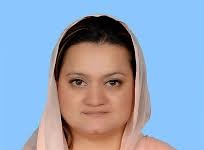Water and Power Development Authority (WAPDA) Chairman Lt Gen Muzammil Hussain (retd) on Friday said the authority is committed to the water, food and energy security of the country. He expressed these views while addressing students and faculty members at University of Agriculture, Faisalabad. At present, he said, WAPDA has been constructing as many as 10 projects in water and hydropower sectors under ‘Decade of Dams’, to be completed in a phased manner from 2023 to 2029. The chairman said that WAPDA has been tremendously contributing as a vibrant organization towards national development by harnessing the vital resource of water. The under construction WAPDA projects include five dams, three hydropower projects, one canal and one water supply scheme, he said. With completion of 10 under construction WAPDA projects, the gross water storage capacity in Pakistan will increase from 13 million acre feet (MAF) to more than 24 MAF with an addition of 11.7 MAF, sufficient to irrigate another 1.6 million acres of land, he explained. In addition, 950 million gallons water per day would also be made available for drinking purpose to Karachi and Peshawar, he said. “The installed hydel generation capacity will be doubled to cross 18000 MW with an addition of 9000 MW on completion of these projects. The under construction WAPDA projects will also provide about 35,000 job opportunities during the construction,” he further said.
متعلقہ مضامین
-
Pakistan values relations with Denmark: COAS
-
Shehbaz Sharif’s wife indicted in money laundering case
-
Police produces 30 Indian fishermen in court
-
Ayubia chairlift closed down for the tourists
-
PML-N facing battle for power in party: SAPM
-
French media exposé leaves India red-faced, once again
-
French media exposé leaves India red-faced, once again
-
Targeting Pakistan over Afghan situation, unfair: PM
-
Pakistan, Korea to sign MoU on Buddhist heritage preservation
-
More Chinese youth interested in learning Urdu
-
More Chinese youth interested in learning Urdu
-
Economic empowerment key to women empowerment: YGLs












